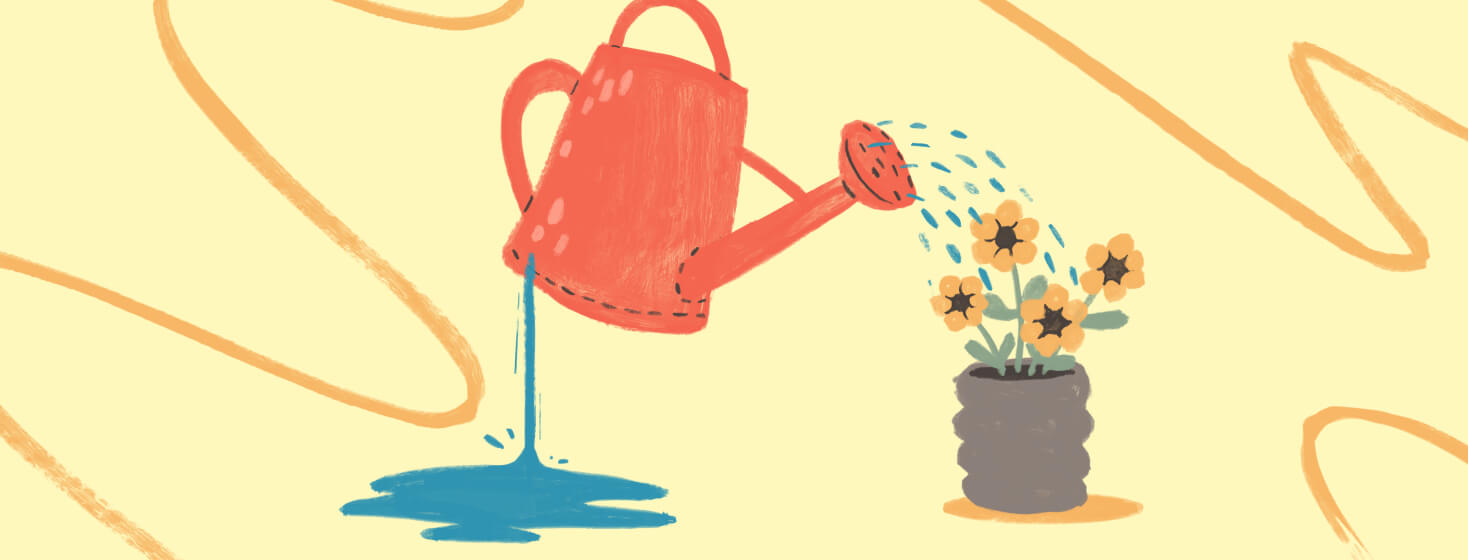When Our Loved Ones Experience "Compassion Fatigue"
I've had depression and anxiety for 20 years. Almost 5 years ago, I went inpatient for 6 weeks because I was suicidal, severely depressed, self-harming, and abusing my anxiety medication. At the hospital, my medications were changed, I did intensive therapy, and I did a course of electroconvulsive therapy.
The treatments were life changing. Still, when I left the hospital, I was scared I would relapse when I got back into the "real world."
Constantly talking about my depression
At home, I spent every minute charting how I felt and talking to (at) my husband and friends about how I felt. I was obsessed with every emotion, however fleeting.
Before I went to the hospital, I started a mental health blog that was dedicated to eradicating the stigma attached to mental illness. It was freeing talking about my experience, and I didn't censor anything. I also started writing a mental health column for the local newspaper.
Shortly after that, I started volunteering for the local affiliate of the National Alliance on Mental Illness. I now eat, sleep, and breathe mental health/illness.
Friends and family may have "compassion fatigue"
Even though it has been so long since the hospital, I still monitor my moods. I walk a tight rope in my recovery, making sure I'm doing everything I can to be healthy and avoid depression taking over.
The problem with that is my husband, family, and friends don't eat, sleep, and breathe mental health. They don't always want to hear about my many moods of the day or challenges. "Compassion fatigue," when loved ones get overwhelmed by your mental health condition, is a real thing.
This or That
Which fatigue symptom impacts you the most?
Depression advocacy is a huge part of my life
But my husband can't escape me so easily. My feelings were hurt when I learned he didn't read my blogs or columns in the paper. I misunderstood it as indifference and thought he wasn’t being supportive until I realized he didn't have to read everything I wrote — he lives it with me every day (and does a phenomenal job supporting me).
When I became the Affiliate Leader of NAMI Greater Corpus Christi, which meant taking on more responsibility, I realized I needed to increase the number of therapy sessions so I wouldn't overload him and my friends with my venting about the new gig and its stressors.
Don't get me wrong — I have an amazing support system with my friends and family, but they can only take so much. I understood that more when I became a support group facilitator and had the opportunity to listen to others' issues for 2 hours twice a month.
It's difficult not to take on other people's problems – and even emotions – when they're struggling. Facilitators are told to debrief after every session for a reason.
Compassion fatigue in society
But it's not just our loved ones who can develop compassion fatigue. I think it applies more to strangers and society. I know that in my experience it has been easier to lie about having depression to avoid comments like, "You just need some fresh air," or, "You need to be grateful," which helps but is not a cure.
So in the past I've performed and put on a happy face, because let's be real, people don't want to hear that you're sad or suicidal — it scares them. And we don't want to be a burden.
So we keep the charade going even though others ignore our warning signs and obviously fake smiles just for them to feel safer. But we have to stop doing this.
There is more mental health awareness now
It's getting better, though. Several years ago, when I was struggling the most, I couldn't find much information on major depression, and I never saw anyone posting about mental health/illness.
Now mental health blogs are everywhere, and more people are talking about it. It doesn't quite have the stigma it once did. But there's still work to be done.
This or That
At this time in your life, how do you view your role in depression awareness?
Outlets that aren't loved ones
If you are particularly loquacious (like me) and like to talk your challenges out, I recommend a therapist. Of course you can talk to your loved ones, but it's nice to have someone objective to listen who you won't overwhelm, even if you do have to pay him/her.
I also highly recommend journaling. This helps me organize my thoughts, vent, and I know there won't be any judgement attached to it. Or you like to blog, try that. I keep up with my blog better than I do with my journal, but it was difficult for me at first to become vulnerable on the internet.
Giving ourselves compassion, too
I live a wonderful life, and I'm happier than I've ever been. I don't feel that I let my mental health conditions take over my life, although it kind of sounds like it. I think maybe I'm just obsessed with staying happy and healthy rather than slipping into that dark place I lived for so long.
That's OK. Really, I'm the one who should have compassion fatigue, because I worry and talk about depression so much. But I must do what I have to do for survival.
And I know my friends and family do, too.
